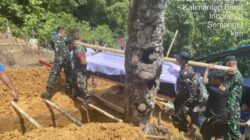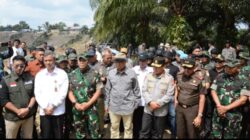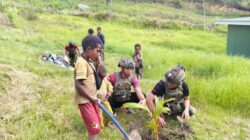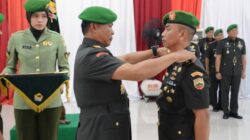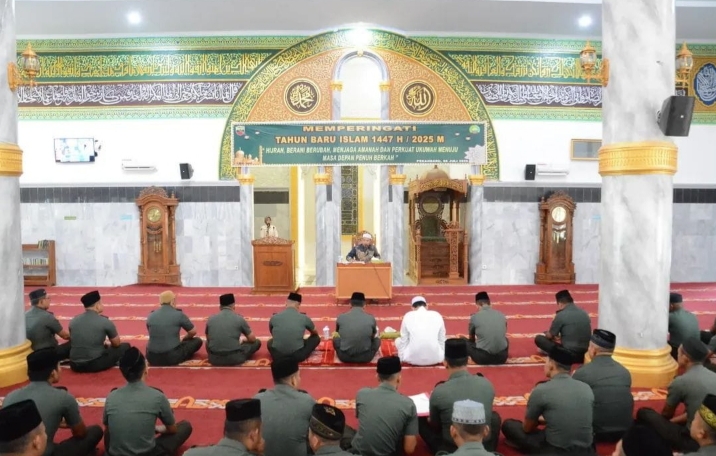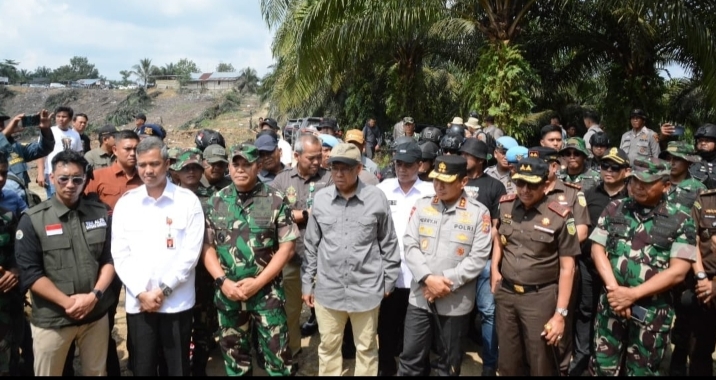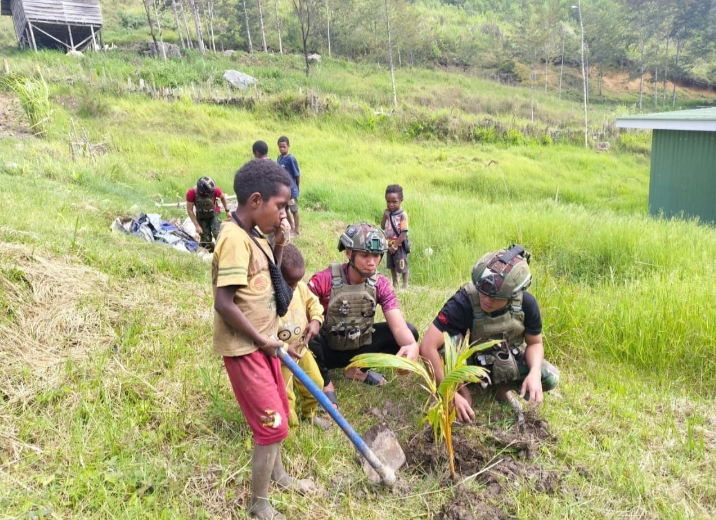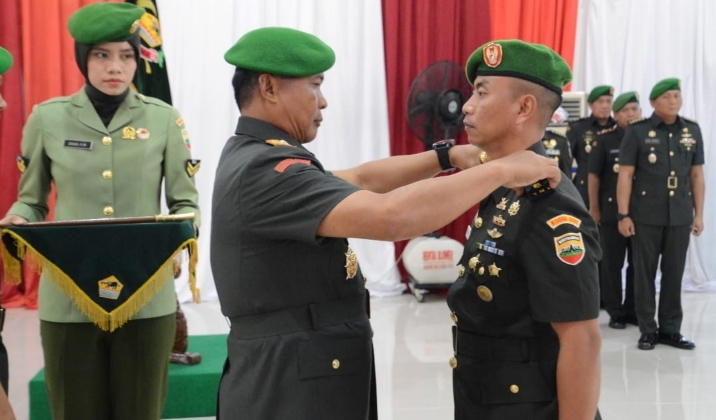KREPKURI NDUGA – One of the military units under the command of the Indonesian Armed Forces Operational Command (KOOPS) HABEMA, the Task Forces of the Para Raider Infantry Battalion 503/Mayangkara Kostrad, is currently conducting the mobile security at the border of Indonesia and Papua New Guinea, especially in Nduga Regency area, Papua Pegunungan Province, On Monday 12 August 2024.
The 503 Task Forces held a Territorial Program entitled, “KOMSOS VISITING THE COMMUNITY” (Social Communication visiting the community) while on patrol in the Mumugu Village, Krepkuri District.
This territorial program was carried out to communicate socially with residents of the Mumugu Village while building social relations and observing security within the Village.
The Soldiers used the opportunity to go from house to house to communicate with the residents and discover developments and security within the village.
The program, in particular, was led directly by First Lieutenant Teuku M. Adam, who serves as Operations Officer of the Task Forces daily. The Soldiers’ presence was welcomed happily by the residents, who had the opportunity to meet them face to face.
By prioritizing security during the program, harmonious communication between the Soldiers and the residents has resulted in a close relationship between the two parties.
To increase familiarity, the Soldiers also took the time to distribute packets of food to senior citizens and candies to the children they met during the program. A young man named Maurids Gwijangge conveyed his greetings.
“Thank you, Bapak Tentara (Mr. Army Soldier). God bless.”
After receiving the activity report, the HABEMA Commanding General, Brigadier General Lucky Avianto, acknowledged the 503 Task Forces’ initiative to communicate socially with Mumugu residents.
His words,” The 503 Task Forces’ initiative is a testament to TNI’s commitment to conduct inclusive Social Communication with all parties to support the acceleration of development in the Papua region.”
This acknowledgment from the highest authority in HABEMA underscores the importance of such initiatives and their impact on the region’s development.



